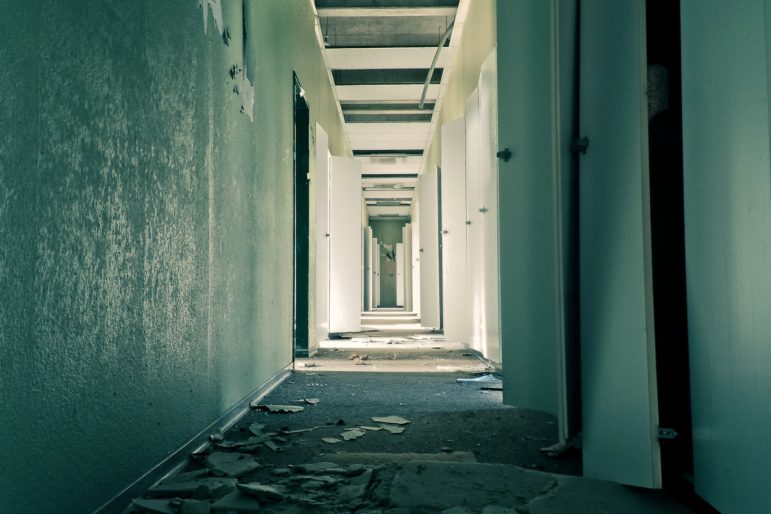Today’s article is the second installment in a multi-part series on intimate partner violence and examines how the pandemic has both increased and highlighted what the World Health Organization recognizes as a global public health crisis with 1 in 3 women or 30% will experience some form of intimate partner violence in their lifetime.
ANAHEIM, Calif. – To whom does a pagan turn when in crisis? Paganism is broad and varied. So many practicing Pagans are solitary, practicing completely independently, and their paths may be decentralized in terms of leadership.
High priests and priestesses, gothis, reverends, and others may not be available to a solitary practitioner. Intimate partner violence often hinges on increasing isolation by cutting ties to outside support.
One thing that the pandemic exposed to workers and advocates who deal with all aspects of domestic violence and intimate partner violence is that the pandemic of intimate partner violence is vaster and more severely entrenched than even experts had estimated. Despite many states and municipalities reopening and widespread vaccine distribution, many shelters and organizations are still not seeing a return to ‘normal’ when it comes to people seeking services.
Further compounding the issue during the pandemic, many shelters closed to new admissions, or they severely restricted the number of people they admitted. Many only admitted the victim and either could not or would not admit children. With shelters overwhelmed with attempting to protect the health of workers and those seeking services, many victims didn’t and still do not feel they can leave home. For some agencies, it became vital to shift from an extraction-focused plan of care to a harm-reducing plan.

[Pixabay]
While some studies indicate the intersection of patriarchal cultural values and Christianity—particularly the evangelical varieties—is a very unsafe place for abused persons, there is little to no formally compiled information discussing Pagan faiths used consistently as an oppressive tool. It appears more likely that those of Pagan faith are often victims of spiritual abuse, in that they may be prohibited from practicing their faith by the abuser.
Faith-Based Assistance Pros and Cons
One important issue to keep in mind when it comes to Pagan leadership is that most do not have formal training or certification in therapy or counseling. They may not be well equipped to understand the mental health care needs of the people who approach them for assistance with such a tangled and difficult issue.
However, there are many ways that Pagan leadership can assist. Joan DeArtemis, who serves as a minister and chaplain and is also a Consecrated Priestess of the Western Mystery Tradition, frames it in this way: “As a Spiritual Care Provider, I am not qualified to be a domestic violence counselor, but I am here to listen. Also, although I am a Spiritual Care provider, both as a minister and as a chaplain, I am not a Pastoral Counselor. That role requires more training in psychology than I have.”
DeArtemis does advocate seeking a faith-centered narrative for those who find comfort in faith.
“If I am talking to a Pagan, I will probably ask which Pagan tradition they practice and which deities they interact with. Then I see if there is a narrative that we can come to, together, that helps make sense out of the situation,” she explains.
One benefit of seeking out a Pagan leader is that that person is much more likely to have a familiarity or understanding of the gods, goddesses, literature, and core beliefs with which the abused person identifies.
Assistance in Place
For some in counseling and assistance, following a harm reduction plan and providing in-place assistance is nothing new. Beyond listening, minister and chaplain Joan DeArtemis seeks to provide available resources that can help a person in an abused situation seek help if they want or are able to do so.
Many agencies have still focused even during the pandemic on extracting the abused person from the relationship if at all possible, but some have moved to a more integrated approach of providing harm-reduction support to the abused person even if they remain in the home and/or the relationship.
This approach is often extremely difficult for friends and family to understand, but there are so many reasons why abused people cannot or will not leave. Agencies have realized that providing assistance contingent upon the person leaving and entering a shelter has the effect of further isolating the abused persons.
If Pagan leadership does not have formal backgrounds or certifications in psychology, domestic violence, or counseling and therapy, they may struggle with providing assistance in place.
Pagan-Centered Assistance
One Pagan-friendly resource is Macha’s Justice. They are the only organization actively offering resources that are explicitly Pagan and Magickal community-inclusive. Macha’s Justice is a small organization that provides some short-term support, as well as classes and materials with a polytheistic or Pagan perspective. They are a volunteer staff, so they do not provide long-term support or counseling, but can help those in need seek services based on their needs and location.
The founder of Macha’s Justice, Marjorie Coffey, feels that the desire to help is out there. However, they believe that the community is unclear on how best to structure faith-based assistance in a way that brings together the appropriate training and background with intersectional methods and faith-sensitive practices.
While Pagans work in many of the fields that touch on various aspects of intimate partner violence, they are often not ‘out’ in their professional lives as Pagans. They may also be too overworked or unable to offer personal assistance outside the confines of their professional capacity. Many Pagan survivors of intimate partner violence are hesitant to discuss their faith or belief openly with providers out of concern that the provider will not understand, or will make negative assumptions that could impact care and advocacy.
Bringing the Issue Out of the Broom Closet
Providing safe spaces is important in assisting survivors of intimate partner violence. The pandemic severely compromised the ability of agencies of all kinds to do so. One thing that unites much of the Pagan community is the desire to create safe spaces for all of the wide variety of traditions, beliefs, and practices that are often unwelcome outside of the Pagan community.

Image credit: Hands off my tags! Michael Gaida from Pixabay
Many in Pagan leadership are not paid for the work they do. They are volunteers who must rely on other jobs to support themselves and their families and may only be able to dedicate some of their time to their leadership position. There are very few resources available within the Pagan clergy program for counseling and training. Some may feel they are not qualified to offer any assistance when it comes to this issue or may experience discomfort in getting involved.
However, intimate partner violence is a Pagan problem, because it is an “everyone”
problem. It is under-reported. It is a health problem—many people are injured, and in too many cases, the injuries are fatal. The mental health needs of both survivors and perpetrators often go unaddressed, even when a survivor leaves the abusive situation. It is an economic issue, impacting productivity in the workplace. It spans all faiths and religions, races, and socioeconomic classes.
Supporting Pagan-centered organizations like Macha’s Justice and developing Pagan resources in partnership with professionals and advocates is key.
Part III of this series will offer some information on practicing harm reduction for those who cannot leave their situation, as well as those who can.
The Wild Hunt is not responsible for links to external content.
To join a conversation on this post:
Visit our The Wild Hunt subreddit! Point your favorite browser to https://www.reddit.com/r/The_Wild_Hunt_News/, then click “JOIN”. Make sure to click the bell, too, to be notified of new articles posted to our subreddit.